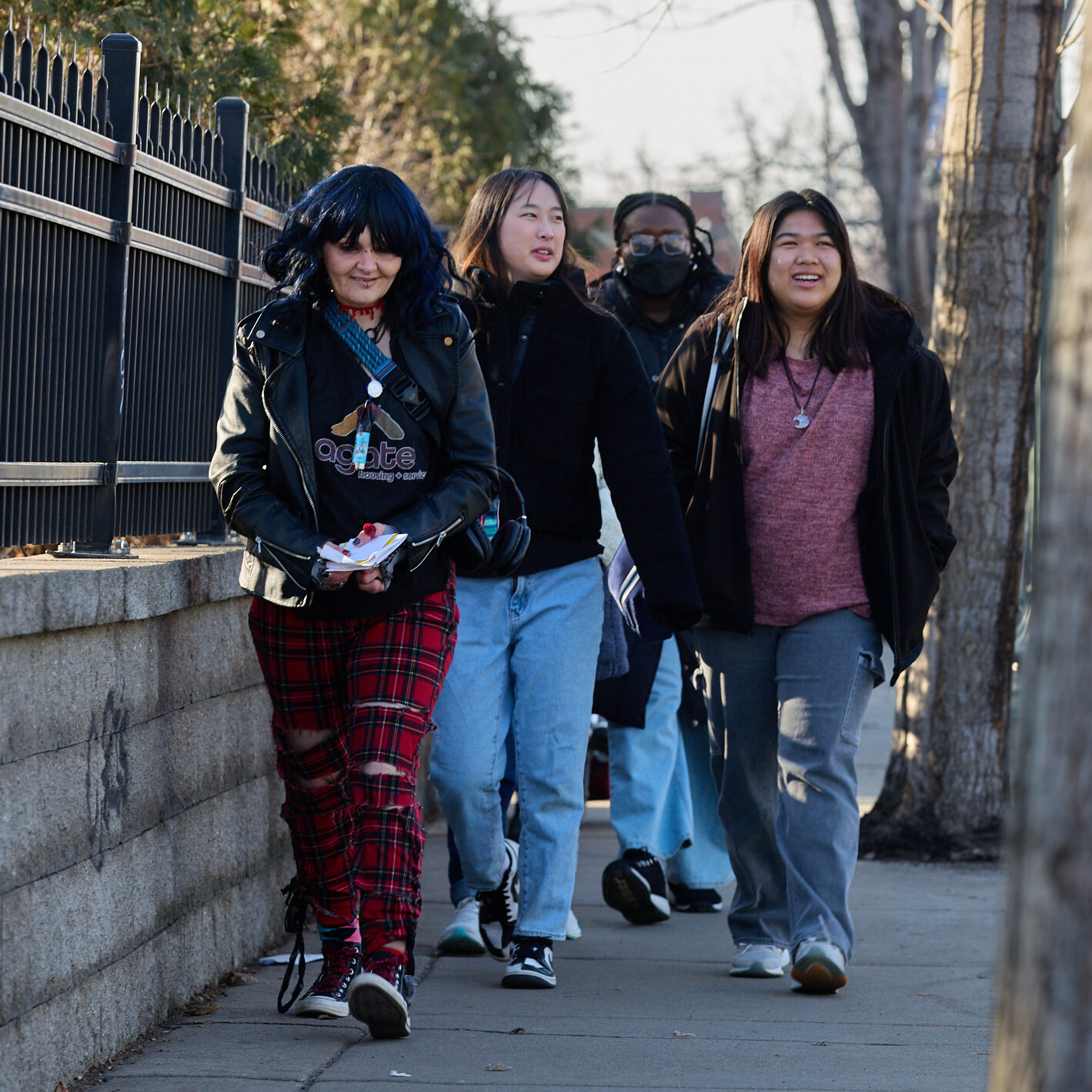Proximities
Justice Up Close

“To change the world, we are each going to have to find ways to get closer to people who are living on the margins of society.
It’s only in proximity that we get close enough to problems to understand how to solve them and understand their complexity.”
– Bryan Stevenson, Lawyer, author, founder and executive director of the Equal Justice Initiative
Proximities seminars are a creative spin on one of the institute’s founding convictions: that the best way to learn about and engage the work of justice is to get proximate with those most affected by injustice—and those working in their communities to undo it. These one-credit S/U seminars for undergraduates provide opportunities to briefly but intensely engage with a question of justice in a specific time and place. They include an immersive experience during spring break. Consistent with the University’s mission, the aim is to create a sense of human solidarity and concern for the common good that will bear fruit as learning becomes service to justice.

“It’s one thing to hear about environmental injustice. It’s quite another to experience it.”
– Natalia Gonzalez Giraldo ’27
Topics vary each semester to respond to urgent signs of the times. They might include justice at the border in Tucson, Arizona, healthcare in Minneapolis, Minnesota, environmental health in New Orleans, Louisiana, restorative justice in Los Angeles, California, and more.
Questions of justice require getting proximate to them in order to better understand their origins, their impact on human lives, and possible responses. This pursuit of the truth calls for a posture of encounter, of nearness, of proximity. As Pope Francis once stated, “God’s style is never distant, detached or indifferent. On the contrary, it is a style of proximity, compassion, and tenderness.” The seminars are intentionally small so as to cultivate serious discussion and participation with questions of justice.
Proximities are open to all students and offered free of cost. Travel, housing, and food all are provided. In addition to registering for the class, students must apply and sign participation agreements so as to secure spots and make travel arrangements.





“By stepping into shelters, clinics, and government buildings in Minneapolis–St. Paul, I was confronted with the realities of healthcare justice in ways that reading statistics and policies alone could never fully capture.”
– Reese Calalang ’28
Current Offerings
Arts of Dignity (SOCO 23205)
This one credit S/U course explores how the arts can be utilized as a tool to promote justice and the common good. Students travel to Philadelphia, Pennsylvania over spring break to engage with community organizations and local artists who are navigating the art world through a lens of justice. While there, students visit museums, artist studios, and local art centers all while practicing their own interpretations and appreciation of art. Additionally, students complete short, relevant readings, writing reflections, and collaborate on a final, creative project. There are meetings with the instructor before and after the trip to prepare and then reflect on ideas of how the arts can be utilized for justice.
Environmental Justice in Cancer Alley (SOCO 23206)
This one credit S/U course examines the structure of environmental racism and the impact on people and their communities, how faith leaders and organizations address the risks of climate change, community resilience, and strategies for adaptation and mitigation. Students engage with these concerns in New Orleans, LA, and nearby “Cancer Alley” during spring break. While there, students have the opportunity to listen to stories from environmental activists, hear from Catholic and other faith leaders about their justice work, visit communities in Cancer Alley, and observe the impact of policy on addressing environmental injustice. Before and after the trip, students meet to learn about and reflect upon environmental justice and possible responses inspired by Catholic social teaching.
Justice at the Border (SOCO 23204)
This one credit S/U course examines why migrants leave their home countries, what they encounter at the border, responses from the U.S.-based citizen and faith groups, and the effectiveness of U.S. enforcement policies. Students engage with these questions in the Tucson, Arizona borderlands area during spring break. While there, students have the opportunity to observe legal proceedings, attend a humanitarian aid training, tour a Border Patrol facility, listen to stories from migrant families, visit the border wall, hear from Catholic and other faith leaders about their justice work along the border, visit a border community, and participate in a humanitarian desert trip. Before and after the trip, students meet to learn about and reflect upon the experience of migration and possible responses inspired by Catholic social teaching.
Whole Person Healthcare (SOCO 23203)
This one credit S/U course examines the U.S. healthcare system’s intersections with poverty, housing, addiction, and migration. We do so through the lens of Minnesota’s healthcare system, recently ranked as one of the best in the United States. What structures are in place that support people’s flourishing? Where are there gaps? Why? In order to bridge the theory and the praxis, the course involves a five-day immersive experience to Minneapolis-St. Paul, Minnesota over spring break. We hear from experts in the healthcare field, visit nonprofit organizations working in healthcare, and listen to people impacted by healthcare concerns.

Application
The application for spring 2026 Proximities seminars will open November 1 and close December 1.
Questions?
If you have questions or want to make an appointment to speak with one of our program directors, contact Greg White at gwhite2@nd.edu.
